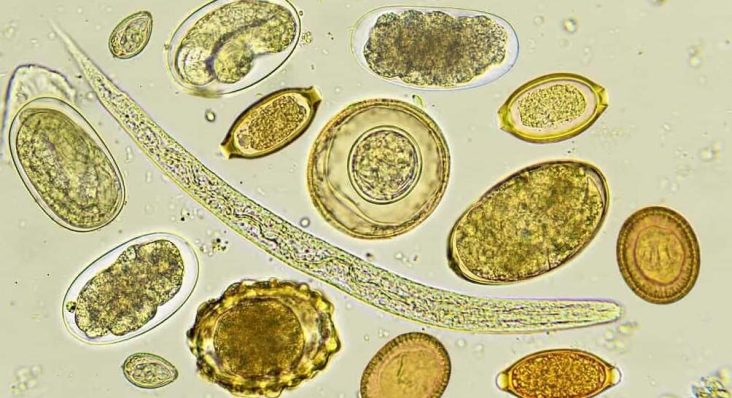A-State researcher awarded $452,000 animal disease grant
by July 30, 2024 1:02 pm 222 views

A researcher at Arkansas State University was recently awarded a National Science Foundation (NSF) grant, and it could aid the development of the College of Veterinary Medicine.
The Building Research Capacity of New Faculty in Biology (BRC-BIO) grant for $452,000 was awarded to Dr. Kyle Gustafson, assistant professor in the Department of Biological Sciences.
Gustafson will study the ecological and evolutionary processes that shape host and parasite communities at various levels of biological organization from natural wetlands, to experimental cattle tanks, to the molecular level.
“We are thrilled that Dr. Gustafson has secured the first BRC-BIO award, not just at A-State, but in the state of Arkansas,” said Dr. Travis Marsico, vice provost for research, innovation and discovery. “His work in evolutionary ecology will result in important discoveries about how the biological world works and has implications for better understanding parasitic diseases and transmission, even those with human health implications.”
“The question is simple,” Gustafson said. “Why do we find different patterns of parasite biodiversity in different locations? The answers are not so simple, however. There is a rich body of ecological and evolutionary theory that helps us understand why parasites occur where they do, and my research lab aims to transform our understanding of parasite biodiversity in the state.”
At the largest scale, Gustafson plans to analyze host-parasite communities from hundreds of wetlands and streams throughout Arkansas to better understand the distributions of trematode, nematode, and coccidia parasites and their required snail hosts.
“Not only are we interested in parasites of medical and veterinary importance, but we are also interested in documenting the rich undiscovered diversity of parasites throughout the state,” Gustafson said.
His work with his doctoral student, Taylor Fiedor, has already uncovered the presence of carnivore schistosomes being released from snails in Northeast Arkansas, causing debilitating diseases in dogs, and represents an important parasite of which pet owners should be aware.
Funding will also allow Gustafson to establish a long-term mesocosm array housed at the University Farm.
“The mesocosms are a set of outdoor experimental tanks that better resemble nature than indoor laboratory tanks,” he said.
The mesocosms will be a major part of his research with doctoral student Sam Messinides, who will more directly study the effects of parasitism on host populations and community dynamics.
The funding will allow Gustafson’s team to tackle some fine-scale molecular questions related to how infections establish.
“Why is it that when multiple animals are exposed to the same parasites, only some become infected?” he asked. “My research with Taylor and Sam will use advanced genomics and transcriptomics techniques to identify potential genes important for parasite defense or susceptibility.”
Both the mesocosm experiments and the genomics research will have implications for understanding the distribution of parasite biodiversity.
“Although some people might wonder about the importance of studying parasites, and others might be simply disgusted, parasitology has never been more important in this region,” Gustafson said. “Given that invasive species are extending their ranges with associated parasites, the high prevalence of heartworms in the southeastern United States, and the founding of the first College of Veterinary Medicine in Arkansas, parasitology has never been a more timely discipline in Northeast Arkansas.”
“Parasitology is an essential aspect of a veterinary sciences curriculum, and research is a critical part of vet school accreditation,” said Dr. Heidi Banse, dean of the College of Veterinary Medicine.
Although Gustafson already teaches parasitology to pre-veterinary undergraduate students from the Department of Biological Sciences and the College of Agriculture, his research endeavors have the potential to engage students in projects with which veterinary students would otherwise not have access.
Dr. Jennifer Bouldin, dean of the Beck College of Sciences and Mathematics, added, “The veterinary school dean and I are in discussion with Dr. Gustafson about teaching parasitology as part of the A-State College of Veterinary Medicine curriculum. We expect he will have strong positive impacts among multiple A-State colleges through his teaching, research and mentoring of veterinary research students in his laboratory.”
